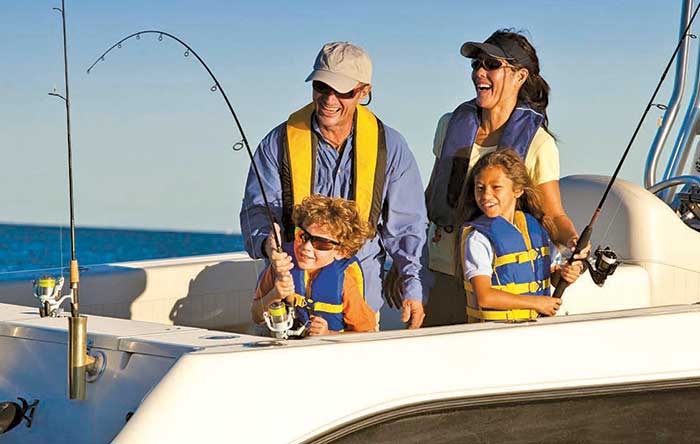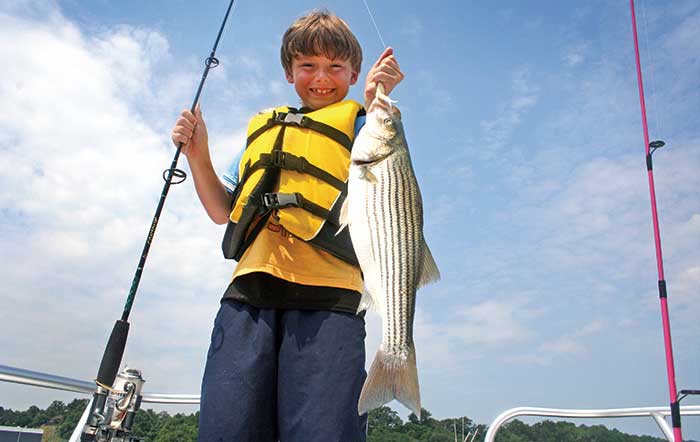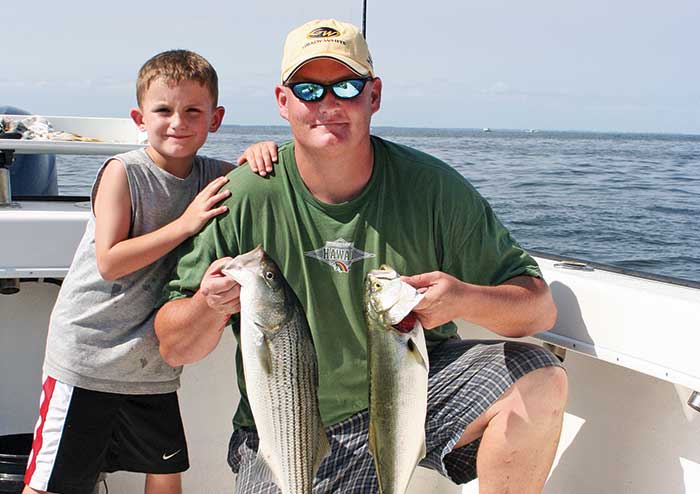Advertisement
Want to turn kids into happy anglers? Keep them interested and occupied, and there’s a good chance they’ll enjoy fishing for a lifetime.

Fishing can be a great family activity, but a few simple tips will help keep kids looking forward to future outings. (Photo: RBFF)
If you have children or grandchildren, you know how much they enjoy fishing. But there's a catch — slow days on the lake or bay can lead to boredom, which is a surefire way to make those kids restless and maybe even turn them off to fishing in the future. No matter how good an angler you may be, you can't always guarantee fast bites and lots of action. So how do you keep those kids interested? These 10 tips and tactics will help.
1. Choose a target species or a style of fishing that commonly generates lots of action, as opposed to hunting for fewer bigger or more desirable fish. Casting worms for sunfish may not be as glorious as flinging spinner-baits for bucket-mouth bass, but it does usually produce nonstop bites that will keep the kids giggling. Similarly, avoid tactics like trolling if there are likely to be long stretches of inactivity between knockdowns.
2. Give the kids a job to do when the action is slow. This can range from scouting the horizon for working birds to jigging a rod that may otherwise sit in the holder. You may even want to make up some busywork, like rearranging the swivels in your tackle box so the same sizes are all in the same slot (after you've mixed them all up). Kids may not have the knowledge or dexterity to rig baits or set lines the way you like them, but the important thing is to make sure they stay occupied and feel like they're contributing to your fishing endeavors.
3. Fill the livewell with baitfish or other critters — even if you're fishing with lures. Kids can spend hours playing with minnow, small crabs, or shrimp in a livewell. Just give them a dip net, and keep a spare towel aboard because things are likely to get wet.
4. Stick with active forms of fishing as opposed to those that force you to sit and wait. Casting jigs or plugs, for example, will usually occupy children for quite a while — even if the fish aren't biting. Sitting at anchor with baited lines out and rods resting in the holders, on the other hand, is a recipe for boredom.

Active forms of fishing, like casting jigs, with often hold a kid's attention better than sitting around and waiting for a bite. (Photo: Lenny Rudow)
5. Try a new spot — and let the kids drive there. There's not a child on the planet that doesn't get excited at the prospect of driving a boat. So sometimes, even if you don't think a new spot will necessarily improve the bite, a change of location can work wonders.
6. Teach the kids a new knot — then have them practice it. Plan ahead by bringing some string or rope because it's much easier to learn knots with lines that are easy to see and handle than with clear monofilament fishing line. And most kids love learning something new. Added bonus: Once they've learned how to tie an improved clinch or a Palomar, you can get them involved in the rigging on future fishing trips and lessen the workload on yourself.
Tip
7. Check your lines regularly and often, and let the kids crank them in. Even when there's not a fish on the end of the line, they'll enjoy racing to see how fast they can get the line in. And along with keeping the kids occupied, in the long run, this will usually help you catch more fish, too, since you'll be monitoring your lines and lures more often than usual.
8. Change the game plan when the fishing is slow, even for the same species of fish. Let's say you're fishing for flounder, and it's the only readily available species in the area. The difference between techniques like jigging a soft plastic lure and drifting a minnow is significant, and switching up the tactics is almost like starting a new day. You may or may not catch more fish, but either way, it'll help keep things interesting for the little ones.
9. Take frequent breaks. A beach-break or a quick trip to the shoreline to gather some fresh worms may interfere with the actual fishing, but remember, the main mission here is keeping the kids happy as opposed to maximizing the catch.

Worry less about catching fish and more about keeping that grin going from ear to ear. (Photo: Lenny Rudow)
10. When all else fails, change gears and do something entirely different. We hate the thought of cutting your day short, but there's nothing worse than forcing a child to continue fishing when he or she has grown completely sick and tired of it. Compelling a bored child to fish for hours on end will do nothing more than turn them off to the possibility of fishing in the future.
